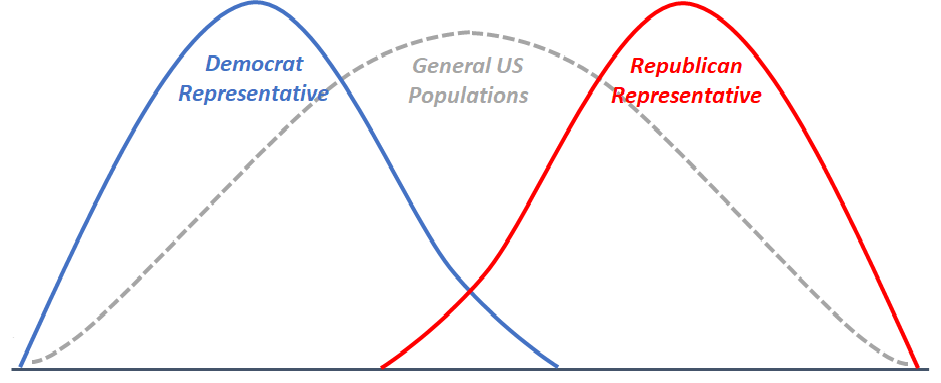Blog Layout
You're fired.... How we accept behavior from politicians that would send us to the unemployment line
Jim Swigart • Dec 06, 2023
Discussing hostility in our political system
We are taught at an early age to be kind to others. We learn this at home, school and in the activities and sports we participate in. Later in life, when we start working these values are not just expected to be adopted, but there are policies in place to ensure we are reasonably kind and respectful to others in the workplace. I'm sure you know what happens when someone violates those policies.... they get fired.
So we ask ourselves, why is it that politicians can slander, demean, harass, lie about and make fun of others in their "workplace" without consequence?
Before I go into what drives the issue, it is important to understand the reason why this matters.
At the core of it, our government is a team of individuals with the common purpose to serve Americans and improve the lives of existing and future generations. Maybe over-simplified, but let's go with that for now. If that is the role of government, then the organization as a whole should be aligned to that objective.
When organizations have individuals that are disrespectful, combative and even hostile to others during discussions it creates a toxic environment. Yes, debate is good, but when decisions are made people have to have the ability to move on to support the success of their organization, even if they didn't get their way. Hostile work environments result in lack of organizational support, unhealthy competition and even sabotage of projects or initiatives. You probably have seen this in your workplace at some point in your life.
When we look at our government, especially at the national level, there is no wonder congress has an approval rate of 18%. It is one of the most dysfunctional organizations in the US and a lot of it is the continuous, highly visible and personal attacks between members both across and even within parties.
Here are just a few reasons there are so many issues:
1) Win at all costs / Us vs. Them
There is a LOT of money in politics. In 2022, lobbyists spent $4.2 Billion according to Open Secrets. If lobbying was a single company, they wouldn't be too far from making the Fortune 500. Couple this with a two-party system where each is fighting for majorities and you get a political system that not only provides significant personal wealth creation, but increases your value if you are a member of the party in power.
The ends justifies the means mentality reinforces that it's okay to do anything necessary to win. This is not only true during elections, but during policy debates as well.
2) Ethics committees that have no focus on treatment of people
I looked at the sites for the Senate and House ethics committees, but didn't actually see anything on the general treatment of other members or candidates when running for election. Think about it this way. Imagine working at a company that has policies about receiving gifts from your suppliers, but doesn't have a policy regarding ethical treatment of employees. Hopefully things would remain civil, but when you're up for a promotion and another person being considered starts lying to management about your performance and how your ideas would ruin the company, what then? Would you be okay with that because there is no policy preventing that?
3) In the end, it's us
It's true. American voters have to make a stand and prioritize ethical leadership even above political affiliation. With the tribalism of politics, this isn't an easy thing to do. But at the end of the day, we elect the leaders that represent us.
There are several more reasons and nuance to the post. At the end of the day, a lack of civility is a major reason that our political process is broken. The question is, do we have the will to try to fix it?
Share
Tweet
Share
Mail

By Jim Swigart
•
06 Dec, 2023
Corporate DEI initiatives have taken a hit recently. While there are many stated reasons (whether accurate or not), there is one I want to focus on today. According to a Forbes article, many executives fear the backlash of these initiatives by conservative groups. After all, who wants to risk being the next Bud Light? Here is my perspective. For companies scaling back their DEI initiatives due to fear, they likely fall into two groups. Group 1: They weren’t supporting DEI for the right reasons in the first place Group 2: They lacked the knowledge to create a comprehensive DEI policy and communication strategy Let’s focus on the second group. There appears to be a lack of understanding of the groups that support and oppose social initiatives and why they have those beliefs. Not having visibility into simple things about these groups can increase the fear of the unknown, which may cause leaders to question or scale back initiatives they previously supported. Some of those questions can be: - How large is the group that oppose DEI policies? Is a very small but vocal minority? - Is there a single concern they have or are they against anything they perceive as DEI? - What is the reason they oppose or support DEI policies? - Is there a line where even supporters of DEI think it goes too far? By understanding these questions, leaders can more confidently support their DEI initiatives and effectively communicate their positions internally and to their customer base. Click here for a brief that discusses the racial relations aspect of DEI and the seven groups that represent American views. It gives initial insights into some of the questions above and can hopefully be the beginning step to create a positive, sustainable DEI strategy.
SIGN UP FOR OUR NEWSLETTER
(Don't worry, we won't flood your inbox)
Thank you for subscribing to our newsletter and reach out if you have questions or to give feedback.
Oops, there was an error sending your message.
Please try again later
Please try again later

